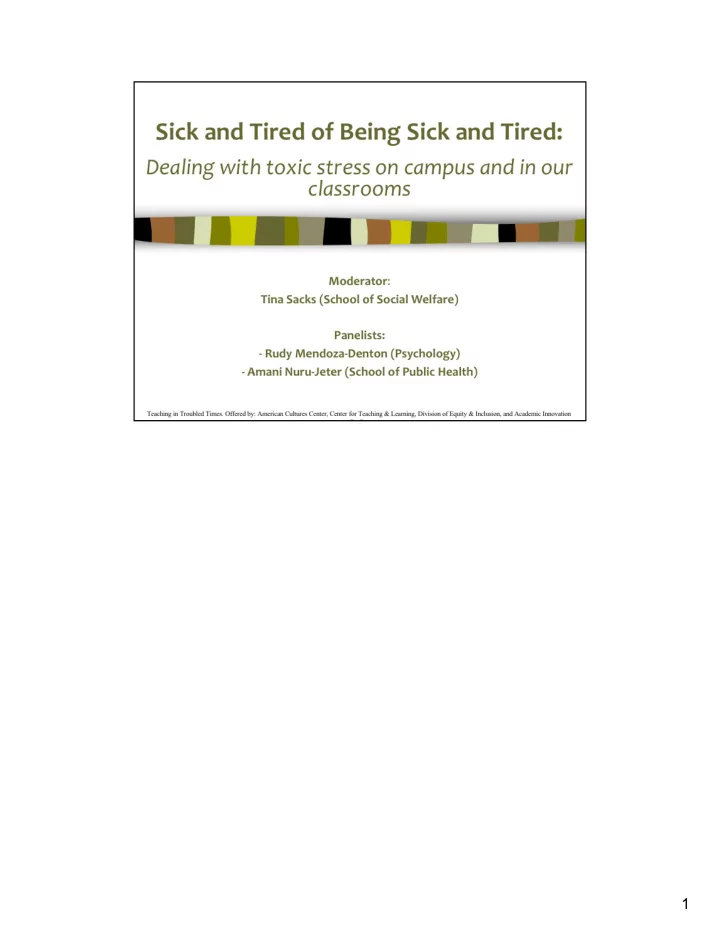

1
PH255A, SP 06, Nuru-Jeter Toxic stress 2
• Stress means “change”. It is not inherently good (eu-stress) or bad (di- stress). • Our bodies have a natural way of adapting to environmental demands. This is commonly referred to as our ‘flight or flight’ response. This response is characterized the normative process of ‘activation’ and ‘recovery’. During ‘activation’, our bodies release a variety of stress hormones (e.g., cortisol) that are adaptive in nature and allow us to respond to immediate demands (e.g., increased heart rate, increased respiration, etc.). Once those environmental stressors are no longer present, our bodies generally return to resting state. 3 3
• Our bodies normative process for activating and recovering is called allostasis, which is defined as ‘maintaining stability through change’. This is normal and is represented in the top box. • The four bottom boxes represent what happens when the body experiences exhaustion from too much stress. This is called allostatic ‘load’. Allostatic load can manifest in numerous ways. There are two common profiles: 1) inadequate responding (bottom right). 2) prolonged circulation of stress hormones in the body which over time can become ‘toxic’ to the body (2 top boxes and bottom left). 4 4
• We all have the capacity to respond to daily stress, but only to a certain degree. When our perceived demands outweigh our perceived coping resources, environmental demands are appraised as ‘threats’ resulting in (di)stress. 5
• Once appraised as ‘threatening’, we respond in various ways: 1) psychologically, we may experience various forms of psychological distress, 2) maladaptive behaviors, 3) physiologic stress. • Since the mind and the body are connected, the experience of psychological distress can result in various reactions including maladaptive coping behaviors as well as various degrees of physiologic dysregulation. 6
Recommend
More recommend